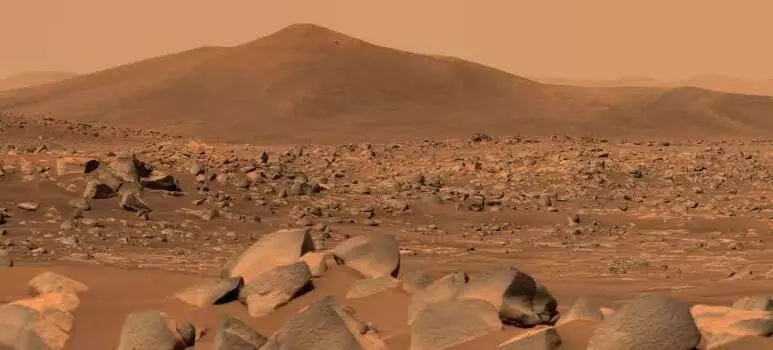
NASA scientists find presence of organic salts on Red Planet
text_fieldsWashington: A NASA team has found the presence of organic, or carbon-containing, salts on Mars, with implications proving that life may have once existed on the Red Planet, as per an IANS report.
According to a study published in the Journal of Geophysical Research: Planets, organic salts such as iron, calcium, and magnesium oxalates and acetates, may be widespread in Martian surface sediments. These salts are the chemical remnants of organic compounds.
In a statement released, the American Space Agency said that the organic compounds and salts on Mars could have formed by geologic processes or be remnants of ancient microbial life.
The findings were determined by lab experiments and analysis of data from the Sample Analysis at Mars (SAM), a portable chemistry lab inside Curiosity's belly.
Nasa said that the discovery could prove handy for future missions to Mars and support habitability in another environment, given that on Earth, some organisms can use these organic salts, such as oxalates and acetates, for energy.
"If we determine that there are organic salts concentrated anywhere on Mars, we'll want to investigate those regions further, and ideally drill deeper below the surface where organic matter could be better preserved," said James M. T. Lewis, an organic geochemist based at NASA's Goddard Space Flight Center in Greenbelt, Maryland.
While directly identifying organic salts on Mars is hard to do with instruments like SAM, which heats Martian soil and rocks to release gases that reveal the composition of these samples, the team proposed another Curiosity instrument -- the Chemistry and Mineralogy instrument, or CheMin for short.
This instrument could detect certain organic salts if they are present in sufficient amounts. So far, CheMin has not detected organic salts, NASA said.
Curiosity's SAM and CheMin teams will continue to search for signals of organic salts as the rover moves into a new region on Mount Sharp in Gale Crater.
Further, the European Space Agency's forthcoming ExoMars rover, which is equipped to drill down to 6.5 feet, or 2 metres, will carry a Goddard instrument that will analyse the chemistry of these deeper Martian layers.























